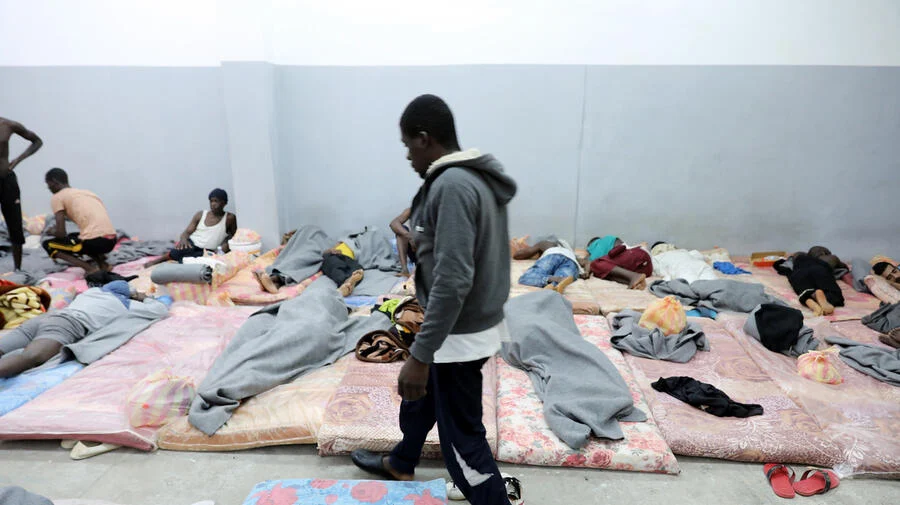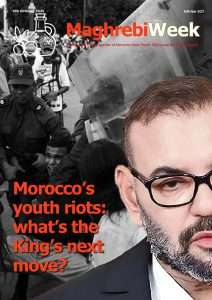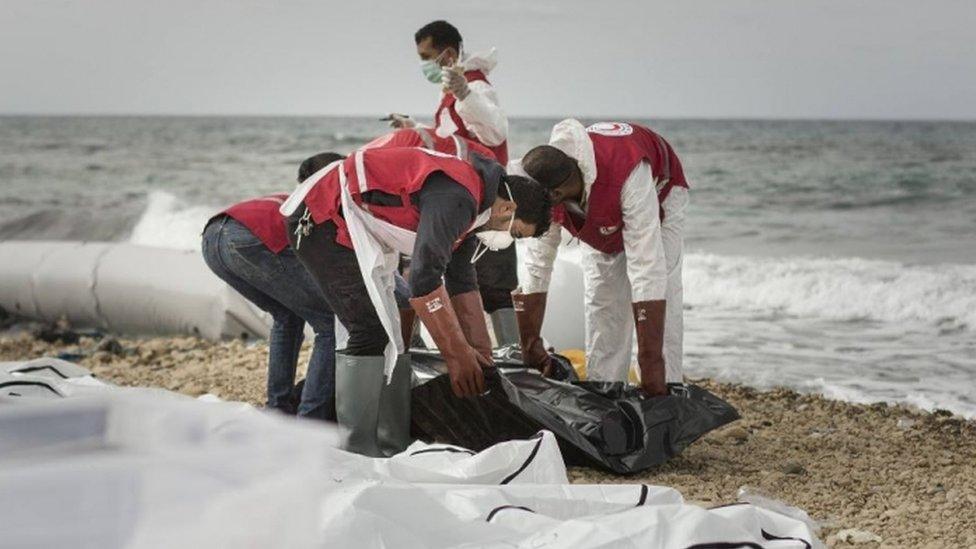The consequence of Europe outsourcing migration control to Libya

The political instability of Libya makes it an ideal transit route for smuggling gangs aiming to traffic people from countries in the Sahel such as Sudan, Niger and Chad. Once in Libya, the ambition is to reach the Mediterranean coast, where the next challenge of crossing the north to Europe is faced. However, before reaching Europe, Libya poses a significant threat. Decades of political mismanagement have created a fertile breeding ground for militia groups, many of whom have great influence over the Government of National Unity (GNU) in Tripoli.
As originally written in the Libya Gazette, the majority of detention centres line the Mediterranean coast with two large clusters centred around the major cities of Tripoli and Benghazi. This demonstrates that most people are intercepted at sea by the Libyan Coast Guard or other naval factions, rather than discovered in the vast wilderness of the Sahara Desert. The Coast Guard’s ability to return boats is tied directly to the 2017 Memorandum of Understanding (MOU) between Libya and Italy, an agreement that sought to halt crossings to islands such as Lampedusa by empowering the Libyan government to detain migrants.
Andrea Cellino, vice president at the Middle East Institute in Geneva, explains that the deal marked a significant moment: “The consequences have been massive. Since the fall of Gaddafi, there have been two main aims in Italian foreign policy with Libya. First to protect their investments in gas and oil through Ente Nazionale Idrocarburi (ENI), and since 2015 to find a way to limit or block migration, either legal or illegal, from Libyan shores.”
Cellino stated that the memorandum has created “a vicious circle” in which Europe has outsourced migration control to Libya and, therefore, has been overlooking human rights abuses. “Political commitments were made by Italy to train the Libyan Coast Guard and from Europe to improve conditions in Libyan detention centres – something that has never been realised because it went against the political interest of both Italy and the EU.” Once people enter these detention centres, abuse is widespread. According to The Global Detention Project: “Those detained, who according to various reports can number between 10,000–20,000 at any given time, often face severe abuses, including rape and torture, extortion, forced labour, slavery, dire living conditions, and extra-judicial execution.”
Despite these conditions, the 2017 memorandum still remains the fundamental framework of EU-Libya migration relations. Cellino said that its endurance is less about solving migration than about appeasing domestic European politics which has seen a rightward trend over the past decade: “It has been a fig leaf that has allowed Italy to say they are stopping migration, which has fueled the rise of the far right. What is grave is that similar agreements to outsource the control of migration have been used by the EU with Tunisia, Egypt and Mauritania.”
Yet, he stresses, the underlying rationale is flawed. “According to EU figures from Frontex, legal migration is actually higher than illegal migration meaning they wouldn’t even need this policy. The EU needs – for demographic reasons – legal channels for migrants to integrate into their workforce. Even the Italian government has recognised this in public documents; there is a need for a workforce that can only be filled by migrants.” Whether the appetite for nuanced political conversations is present in Europe will reveal itself over the decade to come however a consensus amongst experts seems to be building that Europe must accommodate a larger immigrant population in order to maintain economies.

For Libya, the migration issue has become a geopolitical bargaining chip and one that has been used to great economic and political effect by politicians in both the east and west of the country. “Libya has been exploiting the desire of the EU to export migration management in order to promote its own interests. All institutions in Libya have been infiltrated by people either involved in smuggling or human trafficking as well as in other illegal activities,” Cellino explains. The arrangement allows militia leaders and political elites to profit from European funding and equipment, while actors such as Khalifa Haftar use the issue to gain recognition despite lacking legitimacy with the UN or EU.
Looking forward, Cellino argues that Europe must rethink its approach: “The EU’s way forward relies not on reactionary policies and making deals with authoritarian or corrupt governments in North Africa but on building a fair and predictable asylum system coupled with legal migration channels that would satisfy labour and migration needs. “This is something that should occur in the long term, but is not so likely to materialise soon in political terms.” How Libya would respond to a change in EU policy would have to remain to be seen although the country has leverage on the issue. With the support of Russia and Turkey, Haftar in the east has the capability to cause political and economic frustrations for Europe should an end to the illegal migration networks be enforced.
Libya Gazette/ Andrea Cellini/ Global Detention Project/ Frontex/ Maghrebi
Want to chase the pulse of North Africa?
Subscribe to receive our FREE weekly PDF magazine














